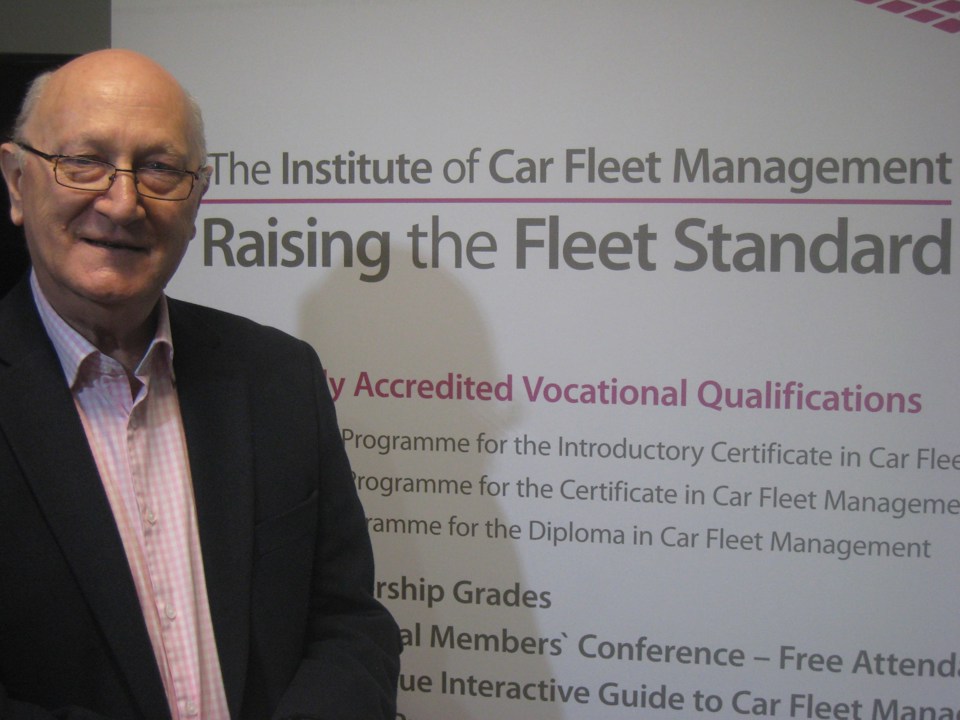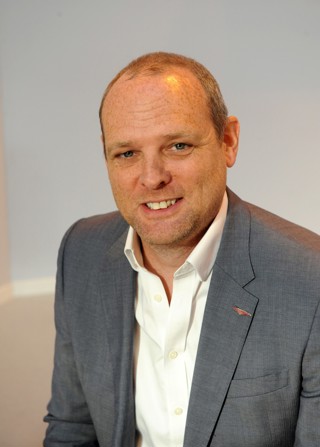Too many businesses have “no idea” of the total operating costs of their fleet, according to James Langley, who has spent 35 years working in the UK fleet industry and is now emigrating to Australia.
Langley (69) joined Arval when it was known as PHH Services, before launching his own consultancy Fleet Intellect. Additionally, since 1995 he has been a Council member of the Institute of Car Fleet Management (ICFM).
With his Sutton Coldfield home up for sale, it may be only a matter of weeks before Langley and wife Jackie leave for Perth to join son Philip, daughter-in-law Michelle and grandsons James, Harrison and Mason, who emigrated five years ago.
However, he departs with a parting shot focused around the requirement for organisations to truly focus on best practice and fleet operating costs.
Langley said: “There are, I’m afraid, plenty of fleets which are being managed in a manner very distant from best practice. Policies are outdated or don’t fulfil an organisation’s needs and real measurements of performance are not established.
“Sadly, there are still too many fleets which have no idea of their total fleet operating costs; have inadequate knowledge of the profile of business and private mileage and many other key measures.
“Many businesses see fleet as a necessary evil and far too few seek to measure what their fleet is doing compared with what the business is doing.”
Consequently, Langley believes there is a real need to shift to what he called ratios. That, he explained, would mean employers linking, mileage and potentially fuel usage to business activity, for example, if an estate agency the number of houses sold or if a provider of engineering services the number of visits made or the number of machines installed.
He said: “That measurement approach brings real relevance to a business of their fleet and can lead to improved route management, better vehicle selection and improvement of individual driver’s MPG.”
It also targets the “real fleet issues”, which in a continuous cycle are: assemble information, interpret knowledge, identify issues, prioritise issues, plan to address, implement and measure outcomes, he explained.
“This approach will support maintenance of a fleet policy,” said Langley, who believes measuring and managing vehicle mileage is potentially the “weakest link” in most organisations.
Highlighting that last year’s reduction in petrol and diesel pump prices to around £1 a litre had put mileage and fuel management, which was already frequently consigned to the “too difficult” box by many businesses, on to the back burner, he said: “I have long held the view that organisations ought to identify commuting as well as business and private mileage.
“There are great opportunities to better understand and manage mileage, the more so where ratios are used and the impact can go well beyond mere fuel costs.”
He continued: “Businesses must understand what is happening with their vehicles so they can understand whether such usage is appropriate. Even if organisations are not paying for commuting mileage they are paying for mileage on cars through depreciation and service, maintenance and repair costs.
“I think we will see maintained and increasing demand for cost-effectiveness which too many fleets still struggle with because they don’t understand the detail of how their fleet really functions.”
One of the most significant changes during Langley’s career has been the shift from vehicle ownership and in-house fleet management to vehicle leasing and outsourced fleet management.
Indeed, he was among the early pioneers of sale and leaseback and outsourcing as he sold the manufacturing technology company’s fleet for “several hundred thousand pounds” returning to the business with the cheque in his pocket.
Subsequently, he joined PHH Services - the company that had bought the fleet - in 1982 as an account manager becoming client liaison manager at the fleet management company before it moved into offering contract hire a few years later.
The contract hire offering was based on “an actual cost principle” and Langley said: “Avoided the disliked aspects of excess mileage charges, early termination costs and end of contract refurbishment costs by looking at them from a different perspective.”
He believes that following a period of time during which leasing companies did not follow the principles of “actual cost and total disclosure”, greater transparency has emerged with fleets having the ability, for example, to pool excess mileage and adjust vehicle contract terms mid-life.
As the door closes on Langley’s UK fleet career - full retirement has not been ruled out in Australia - he reflected: “I’ve met and worked with a variety of people, some had great talents in particular areas. Some have been natural motivators and understood the great power that is invested in them by properly recognising good work or merely saying ‘thank you’.
“A life skill is to know what you’re good at and to recognise where you can improve. I’ve tried to emulate those I regard as the best and I’ve tried to maximise the things I can do well.
“I’ve really enjoyed my time in the industry. I’ve been fortunate to have spent the majority, though not all of my time, doing things I enjoy and do well, to the satisfaction of both my managers and my customers. What more could I ask?”


















Adrian Harris - 02/06/2016 10:31
own under, and would concur with everything that he says